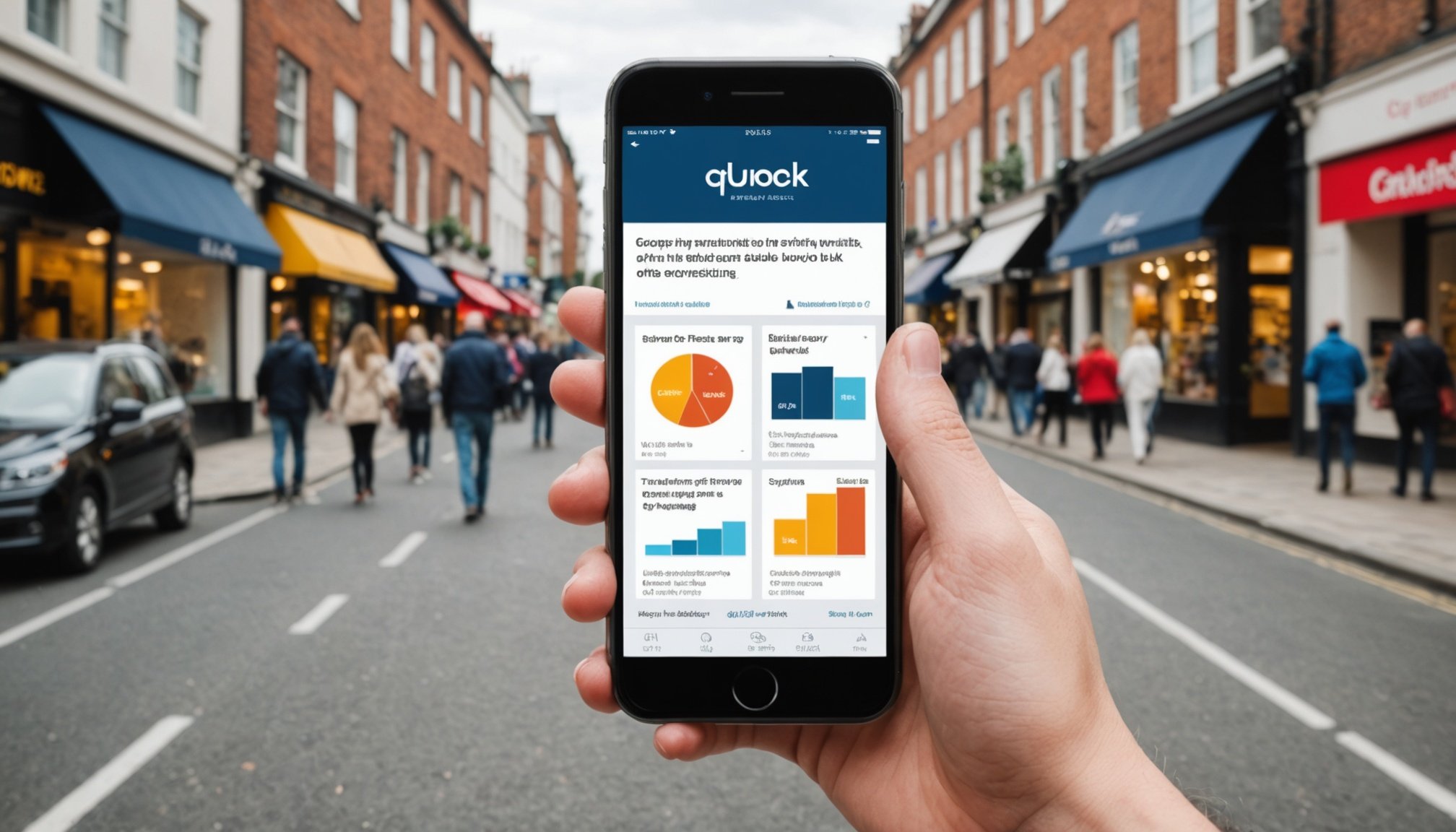Overview of Mobile Marketing Trends in the UK
Mobile marketing in the UK has seen a significant rise, driven by evolving consumer behavior and a surge in digital advertising. Statistics reveal that over 90% of adults own a smartphone, making it a primary medium for businesses to engage customers. This mobile-centric trend underscores the importance of accessing consumers where they spend the majority of their time.
The channels capitalized on include SMS, apps, and social media. Each offers distinct avenues for engagement. SMS marketing, despite being one of the oldest forms, remains effective due to its directness and high open rates. Mobile apps provide personalized experiences and allow ongoing interactions, crucial for fostering customer loyalty. Social media platforms, tailored for mobile consumption, host expansive opportunities for brand exposure and interaction.
Also read : Mastering instagram: a comprehensive uk guide for small book publishers to highlight new releases
A vital trend is the deepening consumer engagement. Brands are leveraging mobile platforms to create more personalized experiences, enhancing customer satisfaction and retention. This aligns well with UK consumer behavior, as individuals increasingly prefer tailored content that resonates with their interests and lifestyles.
In summary, mobile marketing stands as a dynamic field, constantly adapting to technological advancements and changing consumer expectations, proving essential for businesses aiming to stay competitive in the UK market.
Impact of Mobile Marketing on Consumer Buying Choices
Mobile marketing exerts a profound impact on consumer buying behavior, significantly altering purchase pathways. In the realm of mobile advertising, brands leverage the unique capabilities of smartphones to influence consumer decisions at various stages of their journey. A key advantage of mobile ads is the ability to deliver highly targeted content to specific demographic segments, ensuring relevance and personalisation, which are crucial for effective marketing.
Case studies underscore the effectiveness of this approach. For instance, a UK retailer utilized location-based push notifications to boost in-store visits. By sending tailored offers to nearby consumers, the campaign increased foot traffic and subsequent purchases. This example highlights how purchase decisions are often swayed by timely and relevant digital interactions, reinforcing the importance of strategic mobile advertising.
The influence of mobile marketing extends beyond initial attraction; it holds significant weight in consumer decision-making. Many shoppers are swayed in their final purchasing decision by mobile ads, particularly those offering instant value, such as discounts or exclusive deals. As consumer habits continue to evolve, mobile marketing remains a crucial component, driving conversion rates and reinforcing brand-consumer connections through personalized, data-driven strategies.
Demographics of Mobile Consumers in the UK
Understanding consumer demographics is essential for refining mobile marketing strategies in the UK. Insights into mobile usage statistics reveal distinct patterns across various age groups, tailoring marketing approaches becomes paramount. Younger demographics, particularly those aged 18-24, exhibit the highest mobile engagement, frequently utilising apps for shopping and social media interaction. This group responds positively to visually engaging content and interactive mobile experiences.
Conversely, the 35-44 age bracket values convenience and efficiency in mobile usage. They typically use mobile devices for online shopping and prefer receiving promotions via SMS for quick updates. Older demographics, while less engaged with mobile technology than their younger counterparts, are gradually increasing their mobile usage, particularly in browsing and checking emails.
Marketers must customise mobile marketing strategies to these specific target audiences by considering preferences and behaviors. For instance, deploying app-based campaigns with visual elements may attract younger consumers, whereas SMS marketing could effectively engage middle-aged groups. Recognising these nuanced differences not only enhances consumer engagement but also optimises resource allocation, ensuring campaigns deliver the intended impact and resonate across diverse consumer segments. By aligning marketing efforts with these demographic insights, businesses can achieve more effective and precise communication with UK mobile consumers.
Successful Mobile Marketing Campaigns in the UK
Understanding successful mobile marketing campaigns in the UK provides valuable insights for marketers looking to refine their strategies.
Example 1: Innovative App-Based Campaign
A leading UK supermarket chain rolled out an app-based campaign that enhanced customer engagement through personalised shopping experiences. The app integrated consumer data to offer tailored promotions and interactive features. This approach led to a 15% increase in app usage and improved customer loyalty.
Example 2: Effective SMS Marketing Strategy
A UK clothing retailer implemented an SMS marketing strategy that capitalised on time-sensitive offers and exclusive deals. By targeting specific consumer demographics, the campaign achieved a 25% boost in foot traffic during promotional periods. Customers appreciated the direct and immediate nature of SMS notifications.
Example 3: Social Media Influence on Mobile Purchases
A recognised cosmetics brand utilised social media to drive mobile purchases. By leveraging influencer partnerships and user-generated content, they witnessed a 30% rise in online sales. This strategy highlights how mobile marketing through social media can enhance brand visibility and encourage buying decisions.
These examples illustrate the crucial role of targeted, multi-channel approaches in mobile marketing success. Employing user-centric tactics is key to boosting engagement and driving meaningful consumer interactions.
Analyzing the Role of Mobile Devices in the Buying Process
The influence of mobile devices in the consumer journey is undeniable. At every phase of the purchase process, mobiles play a crucial role. Initially, they offer convenient access to information, allowing consumers to research products, compare prices, and read reviews easily. The integration of mobile marketing enhances this by providing targeted ads that cater to individual preferences, influencing potential buyers.
During the decision-making stage, mobiles facilitate rapid interaction and engagement. Consumers appreciate the immediacy and availability of mobile devices, which allows for quicker decisions, often leading to impulse purchases via apps or mobile-optimized websites. Crucial features like one-click purchases and digital wallets streamline this process further.
Post-purchase, mobiles continue to engage consumers through loyalty programs and feedback requests, sustaining long-term consumer engagement. This continuous interaction aids in nurturing brand loyalty and increases the likelihood of repeat purchases.
In the future, the role of mobiles in the consumer decision-making process will likely expand with advancements like AR shopping experiences and AI-driven personalization. This highlights the necessity for brands to seamlessly integrate mobile strategies with offline behaviors, ensuring a holistic and satisfying shopping journey for UK consumers.
Actionable Insights for Marketers
Understanding the effectiveness of marketing strategies in the mobile sphere is crucial for boosting consumer engagement. Mobile marketing effectiveness begins with recognizing the diverse preferences and usage patterns among UK consumers. Utilizing insights into demographics, marketers can tailor strategies to enhance engagement, ensuring messages resonate with target audiences.
To develop effective mobile marketing strategies, consider integrating the following:
- Personalization: Use data analytics to deliver targeted content that aligns with consumer interests, enhancing relevance and impact.
- Multi-Channel Approach: Combine efforts across SMS, apps, and social media to reach a broader audience, exploiting each channel’s distinct advantages.
- Real-Time Engagement: Leverage the immediacy of mobile devices by incorporating time-sensitive offers and location-based services to prompt immediate consumer action.
Measuring and optimizing mobile marketing efforts require tracking key performance indicators (KPIs) like engagement rates, conversion metrics, and retention figures. Applying these insights helps refine campaigns, adjusting strategies for improved outcomes and maximizing ROI.
By adopting these best practices, marketers can enhance mobile marketing effectiveness, driving meaningful connections and sustainable consumer engagement in the competitive UK market landscape.







